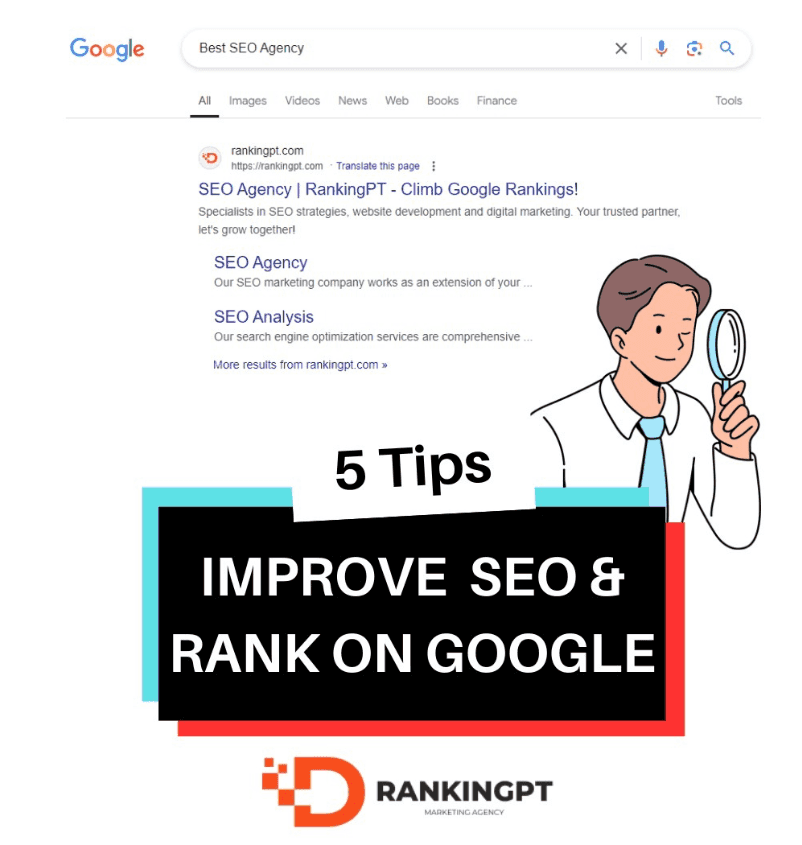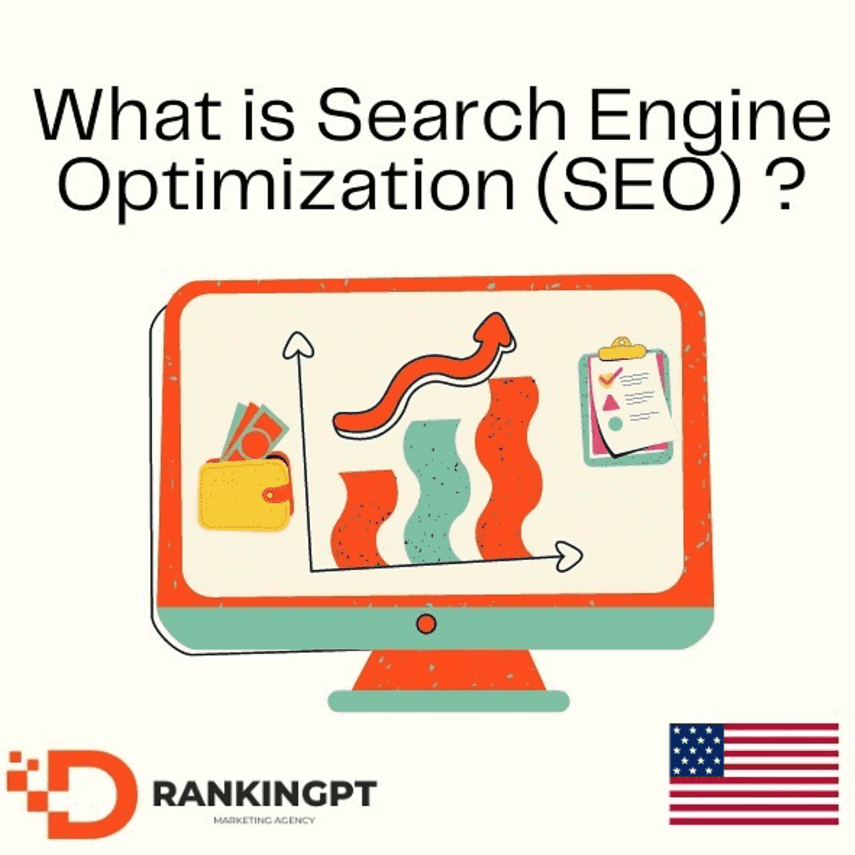What is Search Engine Optimization
What is Search Engine Optimization (SEO)?
SEO stands for “search engine optimization.” In simple terms, SEO is the process of improving your website to increase its visibility on Google, Microsoft Bing, and other search engines when people search for:
– Products you sell.
– Services you provide.
– Information on topics in which you have in-depth knowledge and/or experience.
Every second, millions of searches are processed by search engines—most notably Google, the most popular search engine in the world.
Users are looking for answers to an incredible variety of questions in their daily lives—from the best-rated hotel for an upcoming trip to an explanation of the theory of evolution.
For each search, Google organizes the results by ranking the best answers first. The numbers below show how much users trust the search engines’ judgment:
The first three organic links receive approximately 30% of all clicks.
Only 0.78% of users click on a link on the second page of results.
The more visible your pages are in search results, the more likely they are to be found and clicked on. Ultimately, the goal of search engine optimization is to help attract visitors to your website who will then become customers, consumers, or a returning audience.
Every search represents an opportunity for your brand to provide the best answer to what users are looking for.
This means not only having great content, but also offering usability, good market authority, and helping Google read your pages.
These are the goals of an SEO strategy.
SEO also plays a role in SEM (Search Engine Marketing), which encompasses all search engine strategies, including paid advertising and sponsored links.
On the other hand, SEO uses only organic strategies and this results in a higher return on investment (ROI) and a lower customer acquisition cost (CAC).
What is a search engine?
A search engine is a type of software designed to help you find specific information online. It does this by methodically searching through web content based on specific keywords that you enter into the search box. Search results typically appear on what are called search engine results pages (SERPs). These pages can display a variety of content, including web pages, images, videos, and other types of files.
In addition, some search engines pull information from open databases or directories. Unlike web directories, which rely solely on human editors, search engines update information in real time using algorithms that work through web crawlers.
Search Engine Basics
First, search engines use bots, also known as spiders, to crawl web content. In Google’s case, this bot is called Googlebot. These bots follow links on the internet, looking for new and updated pages.
After crawling, the pages they find are added to the search engine’s index, which acts as a vast library of web content.
Within this index, pages are organized based on information collected by the bot, such as loading time and keywords.
The crawling and indexing processes are ongoing.
Bots are always finding and organizing web content. However, the order in which they present their results to users is determined by ranking.
Ranking occurs every time a user performs a search – this is the focus of SEO.
Based on the keywords used in the search, Google quickly scans its index to find pages that match those terms and answer the question.
Thus, ranking is determined by the best relationship between keywords and a series of ranking factors that make up the search algorithm.
These factors serve to offer a better user experience and, consequently, improve the position of your page in search results.
How search engines rank results
Not all search engines rank content the same way, but some use similar ranking algorithms. Google Search and other similar search engines rank relevant results based on the following criteria:
- Query meaning. The search engine analyzes user queries to determine the searcher’s intent, or the specific type of information the user is looking for. To do this, search engines use language models. These models are algorithms that read the data entered by the user, understand its meaning, and determine the type of information being sought.
- Relevance. The keywords in the search queries are compared with the keywords in the content. The presence of keywords in multiple places in the content indicates greater relevance.
- Quality. Search engines look for indicators of expertise, authority, and trustworthiness in the content. If other important sites link to the content, it is considered more trustworthy.
- Usability. Search engines evaluate the accessibility and overall user experience of the content, rewarding pages with a better user experience. An example of usability is mobile friendliness, which measures how well a page displays on a mobile phone.
- User data. A user’s previous search history, search settings, and location data are some of the types of information that search engines use to determine how content is ranked.
Search engines may also use other site performance metrics, such as bounce rate and time spent on page, to determine where sites rank on a results page.
Brands use search engine optimization (SEO) to take advantage of the processes discussed above. Optimizing a page’s content for search engines increases its visibility to users and improves its search engine rankings (SERP). For example, a brand might insert keywords relevant to a particular search query to improve the results for that query. If you want people searching for dogs to land on your page, you might add keywords like bone, leash, and dog. You might also include links to pages that Google considers to be authorities on the topic.
Examples of different search engines
The world’s most popular search engine, known for its powerful algorithms and extensive indexing. (There’s a good chance you did a Google search to get to this page.)
Good for: Pretty much everyone; it’s the most comprehensive search engine with robust search capabilities across text, images, videos, and academic articles. Google’s vast index and sophisticated algorithms make it ideal for both general and highly specific searches.
Source: Google
Bing
Bing is integrated with other Microsoft services and offers rewards for using its search services.
Good for: Users deeply integrated into the Microsoft ecosystem (Windows, Office); Bing is integrated into Microsoft products and rewards users with points for searches that can be exchanged for gift cards and other rewards.
Image quality and image filters are also one of the great strengths of this search engine.
Source: Bing
Yahoo
Once a dominant name in digital services, Yahoo! Search is known for its web portal and a variety of other services, such as Yahoo! Finance and Yahoo! News.
Good for: Users looking for a combination of search results and current news. Yahoo’s integration with services such as Yahoo Mail, Finance and News provides a complete user experience. Yahoo also prioritizes organic results over paid advertising.
Source: Yahoo
DuckToGo
Popular among the privacy-conscious, DuckDuckGo promises not to track its users’ search activity.
Good for: Privacy-conscious users who prefer not to have their search or browsing history tracked. DuckDuckGo does not profile its users or tailor search results based on past behavior.
Source: DuckDuckGo
Ecosia
Ecosia is the search engine that plants trees. The company uses renewable energy to power its servers and invests its profits in tree planting projects, with the aim of absorbing more CO2 than it emits.
Source: Ecosia
Which Search Engine is Right for Me?
It all depends on your specific needs at any given time. Ranking statistics can vary from one search engine to another, so the ultimate judge is the user. Furthermore, nothing is stopping you from using multiple engines at the same time.
What is the purpose of search engines?
The main purpose of a search engine is to help people search for and find information. Search engines are designed to provide people with the right information based on criteria, such as quality and relevance.
How do search engines make money?
Search engines make money in a variety of ways, including the following:
- Pay-per-click (PPC) advertising. Advertisers or third-party advertising networks place ads on search engines and within the content itself. The more views or clicks a keyword related to a search gets, the more advertisers pay to have their ads associated with that keyword.
- User data. Search engines also make money from the user data they collect. Examples include search history and location data. This data is used to create a digital profile for a particular searcher, which search engine providers can use to display targeted ads to that user.
- Contextual ads. Search engines also benefit from displaying contextual ads that are directly related to a user’s current search. If a search engine includes a shopping feature on its platform, it may display contextual ads for products related to a user’s search in the sidebar of a website where ads are displayed. For example, if your online store sells books, you might see an ad for reading glasses in the corner of your page.
- Donations. Some search engines are designed to help nonprofits solicit donations.
- Affiliate links. Some engines include affiliate links, where the search engine has a partnership where the affiliate pays the search engine when a user clicks on the affiliate link.
The future of search engines
Search engines and the companies that develop them are likely to use new technologies to improve the accuracy, relevance and quality of the answers they provide. They will also use advanced technologies, such as artificial intelligence (AI), to improve the user experience in the future. For example, one day a user may be able to upload a picture of a computer to Google and ask, “Is this a good gaming computer?” and get a detailed answer.
Some experts also believe that search engine usage is declining because in the future more people will be looking for information on other apps and social media sites, such as Facebook, TikTok and LinkedIn.





